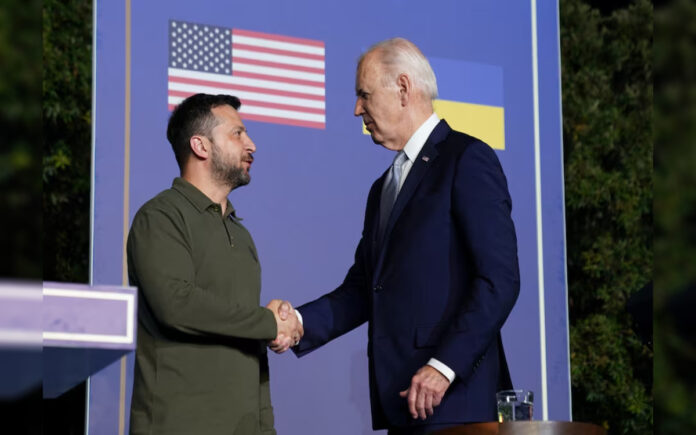Washington: The Biden administration has authorized Ukraine to use American-made weapons to target locations deep within Russian territory, marking a pivotal shift in U.S. policy during the Ukraine-Russia conflict. Two U.S. officials and a source familiar with the decision disclosed this development on Sunday.
This decision comes as Ukraine prepares for its first long-range strikes in the coming days, although operational security concerns have kept specific details under wraps. The move follows persistent appeals from Ukrainian President Volodymyr Zelensky for permission to utilize U.S. weapons against Russian military assets beyond its borders.
Policy Shift Amid Escalating Tensions
The change in policy aligns with reports of North Korean ground troops bolstering Russian forces, a development that has raised alarms in both Washington and Kyiv. A U.S. official emphasized that this shift aims to counter Russia’s growing military strength.
In his nightly address, Zelensky remained cautious but resolute. “Today, many in the media are saying that we have received permission to take appropriate actions,” he stated. “But strikes are not made with words. Such things are not announced.”
Kremlin and U.S. Reactions
The White House and U.S. State Department declined to comment on the decision. Meanwhile, the Kremlin has yet to issue an official response but previously warned that loosening restrictions on Ukraine’s use of U.S. weapons would be perceived as a significant escalation.
Russian officials have issued stark warnings, with Vladimir Dzhabarov, deputy head of Russia’s upper house international affairs committee, suggesting this decision could lead to “World War Three.” Andrei Klishas, a senior member of Russia’s Federation Council, echoed these sentiments, stating the escalation could leave Ukraine “in complete ruins by morning.”
Focus on Long-Range ATACMS Rockets
Ukraine’s forthcoming strikes are expected to employ U.S.-supplied ATACMS rockets, capable of reaching targets up to 190 miles (306 km) away. While some American officials doubt the long-term impact of these strikes on the war’s trajectory, the decision is seen as a potential boost to Ukraine’s position ahead of any future peace talks.
Also Read | Britain Pushes for Sudan Peace Resolution at UN Security Council Vote
Political Implications
As President-elect Donald Trump prepares to assume office on January 20, questions arise about whether he will reverse this policy. Trump has consistently criticized the extent of U.S. support for Ukraine and vowed to resolve the conflict swiftly, though specifics remain unclear.
Trump’s advisor Richard Grenell condemned Biden’s decision, labeling it as “escalating the wars before he leaves office” in a post on X (formerly Twitter). Congressional Republicans, however, have largely supported loosening restrictions, viewing it as a long-overdue measure.
North Korea’s Involvement
The presence of over 10,000 North Korean troops in Russia has heightened concerns. These forces, reportedly engaging in combat operations in the Kursk region, signify a deeper internationalization of the conflict. Despite their efforts, Ukrainian forces have faced personnel shortages, leading to territorial losses in the region.
Analysts like Alex Plitsas, a senior fellow at the Atlantic Council, have described the policy change as necessary but belated. “Removing targeting restrictions will allow the Ukrainians to stop fighting with one hand tied behind their back,” Plitsas remarked.
Also Read | After Long Legal Battle, Hong Kong’s 47 Democrats Await Sentencing
Allied Concerns and Future Steps
Kyiv’s Western allies, including Poland, have welcomed the decision. Polish Foreign Minister Radoslaw Sikorski framed it as a response to both North Korea’s involvement and Russia’s intensified missile strikes. “President Biden responded… in a language that V. Putin understands,” Sikorski noted on X.
However, concerns persist over potential NATO involvement or escalation into a nuclear conflict. Republican Representative Mike Turner expressed measured optimism, stating the decision “will put pressure on Vladimir Putin” but cautioned that further steps are needed.



